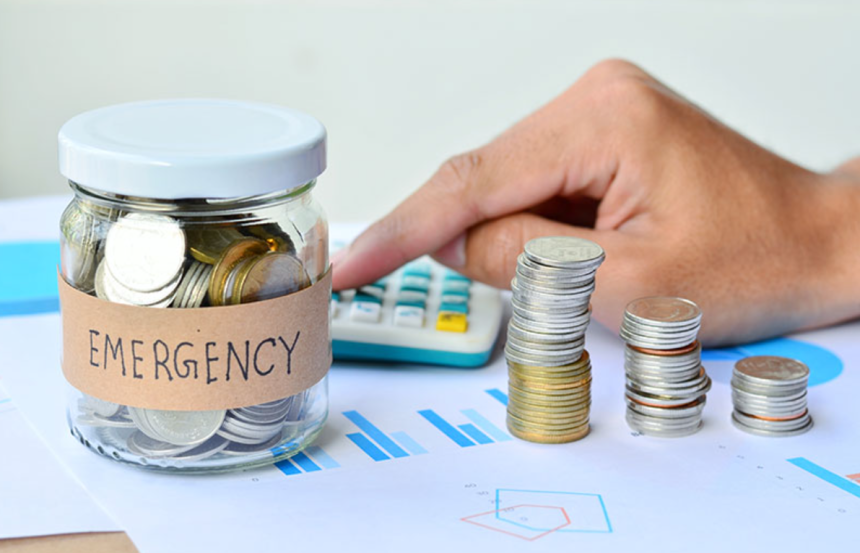In today’s unpredictable world, having an emergency fund is crucial for protecting your financial future. Life is full of unexpected events such as medical emergencies, job loss, or major home repairs, and having a financial safety net can provide you with peace of mind and stability during times of crisis.
In this article, we will explore the importance of emergency funds and provide you with practical steps on how to build one.
What is an emergency fund?
An emergency fund is a designated amount of money set aside to cover unforeseen expenses or financial emergencies. It acts as a safety net, providing a financial cushion when unexpected events occur.
Having an emergency fund is important for several reasons. Firstly, it helps you avoid accumulating debt when faced with unexpected expenses. Instead of relying on credit cards or loans, you can dip into your emergency fund to cover the costs. This can save you from incurring high-interest charges and potentially damaging your credit score.
Secondly, an emergency fund provides peace of mind. Knowing that you have money set aside for emergencies can alleviate stress and anxiety. It gives you a sense of control over your financial situation, knowing that you have the means to handle unexpected events.
It’s important to note that an emergency fund is different from a regular savings account. While both involve setting money aside, a savings account is typically for long-term goals or planned expenses, such as buying a house or going on a vacation. An emergency fund, on the other hand, is specifically for unforeseen circumstances and should be easily accessible when needed.
Additionally, the amount you should save in your emergency fund depends on your situation. Financial experts generally recommend saving three to six months’ worth of living expenses. This includes essential costs like rent or mortgage payments, utilities, groceries, transportation, and healthcare. If you have dependents or work in an industry with uncertain job prospects, you may want to aim for a larger emergency fund.
Keep in mind that building an emergency fund is a gradual process. Start by setting small, achievable goals and consistently contribute to your fund over time. Even saving a little each month can add up and provide a significant buffer in case of emergencies.
How can you build an emergency fund?
Building an emergency fund requires discipline and a proactive approach. Here are some tips to help you get started:
- Make it a priority in your budget: Treat your emergency fund savings as a non-negotiable expense. Allocate a portion of your income specifically for this purpose and include it in your monthly budget. Consider it as important as paying your bills or other essential expenses.
- Start small and automate savings: Begin by setting achievable savings goals. Even saving a small amount regularly is better than not saving at all. Set up an automatic transfer from your checking account to your emergency fund savings account. This way, a portion of your income will be consistently set aside without any effort on your part.
- Cut back on unnecessary expenses: Take a close look at your spending habits and identify areas where you can make cuts. Analyse your monthly expenses and prioritise needs over wants. Trim discretionary spendings, such as dining out, entertainment, or shopping, and redirect those funds toward your emergency fund.
- Increase your income: Consider taking on additional sources of income to accelerate your emergency fund savings. This could involve taking on a side job, freelancing, or selling unused items. The extra money earned can be directly allocated to your emergency fund, helping you reach your goal faster.
- Set milestones and celebrate progress: Break down your savings goal into smaller milestones. For example, aim to save one month’s worth of expenses, then two, and so on. Celebrate each milestone reached to stay motivated and encouraged on your savings journey.
- Prioritise emergency fund over other financial goals: While it’s important to save for other financial goals like retirement or a down payment on a house, prioritise building your emergency fund first. Without an emergency fund, you may have to rely on credit or dip into your long-term savings in times of crisis. Once your emergency fund is well-established, you can shift your focus to other goals.
Remember, building an emergency fund is a gradual process. It may take time, but with consistent effort and determination, you can create a financial safety net that protects you from unexpected expenses.
Maintaining your emergency fund
Once you have established an emergency fund, it’s crucial to maintain and protect it. Here are some strategies to help you keep your emergency fund intact:
- Avoid non-emergency withdrawals: Resist the temptation to dip into your emergency fund for non-emergency expenses. Use it only for genuine unexpected situations, such as medical emergencies, job loss, or major home repairs. Create a clear distinction between your emergency fund and other savings to prevent unnecessary withdrawals.
- Replenish after use: If you need to use your emergency fund, make it a priority to replenish it as soon as possible. Once the crisis is resolved, adjust your budget to allocate additional funds toward rebuilding your emergency fund. Aim to bring it back to its original level to ensure you’re adequately prepared for future emergencies.
- Review and update regularly: It’s important to periodically review and update your emergency fund based on changes in your financial situation. Life circumstances, such as a new job, increased expenses, or the addition of dependents, can impact your emergency fund needs. Regularly reassess your living expenses and adjust your savings goals accordingly.
- Account for inflation: Over time, the cost of living tends to rise due to inflation. Take this into consideration when reviewing your emergency fund. Ensure that the amount you’ve saved is still sufficient to cover at least three to six months’ worth of current living expenses.
- Adjust for changes in income or expenses: If your income increases or decreases significantly, reevaluate the amount you’re saving for your emergency fund. If you experience a raise, consider allocating a portion of the additional income to boost your emergency savings. Conversely, if your income decreases, evaluate your budget and make necessary adjustments to ensure you can still contribute to your emergency fund.
- Keep it easily accessible: While it’s essential to keep your emergency fund separate from your day-to-day spending, make sure it remains easily accessible. Opt for a high-yield savings account or a money market account that offers some interest while still allowing you to withdraw funds quickly when needed.
Remember, emergencies can happen at any time, so maintaining a strong and updated emergency fund is crucial for your financial security and peace of mind.
Using your emergency fund
Your emergency fund should be reserved for genuine emergencies. Here are some circumstances in which it is appropriate to use your emergency fund:
- Unexpected medical expenses: Medical emergencies can be financially draining, especially if they are not fully covered by insurance. Your emergency fund can help cover deductibles, co-pays, or other medical costs that may arise unexpectedly.
- Job loss or income disruption: If you experience a sudden job loss or a significant reduction in income, your emergency fund can help cover your living expenses until you find a new job or stabilise your financial situation.
- Major home or car repairs: When faced with unexpected repairs, such as a leaky roof or a broken-down vehicle, your emergency fund can save you from resorting to high-interest loans or credit card debt.
- Unforeseen family emergencies: Emergencies within your family, such as providing support during a loved one’s medical crisis or helping them through a challenging situation, may require financial assistance. Your emergency fund can help you navigate these unexpected circumstances.
When using your emergency fund, here are some tips to consider:
- Assess the urgency and necessity: Before tapping into your emergency fund, evaluate the situation to ensure it genuinely warrants using those funds. Consider alternatives or explore if there are any other resources available to address the issue.
- Withdraw only what is necessary: Withdraw the minimum amount required to cover the emergency expense. Avoid depleting your entire emergency fund if it is not necessary.
- Keep track of your withdrawals: Maintain a record of the amounts withdrawn and the reasons for each withdrawal. This helps you stay accountable and provides a clear picture of how your emergency fund is being utilised.
- Reevaluate your budget: After using your emergency fund, revisit your budget to adjust your expenses and find ways to replenish the fund as quickly as possible. Look for areas where you can cut back temporarily to allocate more funds towards rebuilding your emergency savings.
- Stay disciplined: Resist the temptation to use your emergency fund for non-emergencies or discretionary expenses. Maintain the purpose and integrity of your emergency fund by only using it for true financial crises.
Having a plan for rebuilding your emergency fund is crucial to maintain your financial security. After using your emergency fund, set specific savings goals and allocate a portion of your income towards rebuilding it. Make it a priority in your budget and consistently contribute to replenishing your fund until it reaches its original level.
By using your emergency fund effectively and efficiently and having a plan for rebuilding, you can ensure that your financial safety net remains intact for future unexpected events.
Conclusion
An emergency fund is a vital component of financial well-being. It serves as a safety net, protecting you from the financial hardships that unexpected events can bring. By having an emergency fund, you can avoid accumulating debt, minimise stress, and maintain control over your financial future.
Building an emergency fund requires dedication and discipline. Start small, automate savings, and make it a priority in your budget. Cut back on unnecessary expenses and consider increasing your income to accelerate your savings. By setting achievable goals and celebrating milestones, you can steadily grow your emergency fund over time.














![Manual Testing vs Automated Testing: Key Differences [2023]](https://thenewsgod.com/wp-content/uploads/2023/08/Manual-Testing-vs-Automated-Testing-330x220.png)
